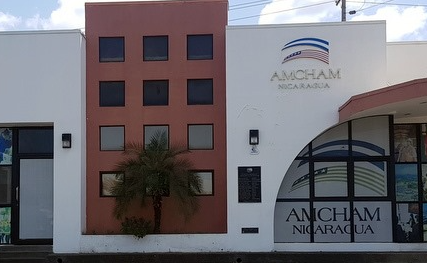
US Chamber Condemns Nicaragua Ban
Fintech ecosystem in Latin America now exceeds 3,000, new report says.
BY LATINVEX STAFF
The U.S. Chamber of Commerce, the world’s largest business organization, condemned the move by Nicaraguan dictator Daniel Ortega to ban the American Chamber of Commerce in Nicaragua (AmCham Nicaragua) and more than 1,000 other civil society and religious groups.
“On behalf of the U.S. Chamber of Commerce and the Association of American Chambers of Commerce in Latin America and the Caribbean (AACCLA), we condemn the Nicaraguan government’s move to revoke the legal status of AmCham Nicaragua and that of more than 1,000 other non-profits, religious groups, and civil society organizations,” John Murphy, U.S. Chamber of Commerce Senior Vice President and Head of International, said in a statement. “These actions underscore the continued deterioration of freedom of association and rule of law in Nicaragua.”
AmCham Nicaragua has played a vital role representing the U.S. and Nicaraguan business community by promoting trade and investment and contributing to the prosperity and well-being of the Nicaraguan people, he added.
“Since its founding in 1974 after the devastating earthquake in Managua, AmCham Nicaragua has been an example of the positive force of the business community and the free enterprise system,” Murphy said. “Its closure represents a serious blow to the business community and the entire Nicaraguan people.”
CABEI PROPPED UP ORTEGA
The Washington Post details how Central American development bank CABEI had helped prop up the Ortega dictatorship despite criticism.
“The Central American Bank for Economic Integration (CABEI) – which has been largely funded by democratic government, including the United States, Taiwan and South Korea – lent $2.65 billion to Nicaragua between 2018 and 2022, mostly for infrastructure and environmental projects,” Washington Post reports. However, some of the loans also went to the police.
2018 was the year when Ortega cracked down on opposition protests, leaving more than 300 people killed and more than 2,000 injured, according to Human Rights Watch.
The loans were made under previous CABEI CEO Dante Mossi and current CEO Gisela Sanchez is revising those loans. She expressed regret that CABEI loans went to the Nicaraguan police even after the crackdown. (La Nacion has a Spanish-language summary of the Washington Post report)
LATAM FINTECH ECOSYSTEM EXCEEDS 3,000 STARTUPS
The fintech ecosystem in Latin America and the Caribbean registered growth of more than 340% in the number of technological finance startups created in the last six years, going from 703 companies in 18 countries in 2017, to 3,069 in 26 countries in 2023, according to the fourth report of the Fintech in Latin America and the Caribbean by the Inter-American Development Bank (IDB) and Finnovista.
More than half of fintech companies serve the underbanked or unbanked population and the region has experienced dynamic regulatory development, with an increase in the number of regulatory frameworks for the development of segments such as open finance and the use of regulatory innovation structures such as innovation hubs and regulatory sandboxes, IDB says.
“The current growth of the fintech ecosystem in the region is due to high demand from financial consumers, the state of the digital financial infrastructure and the availability of a specialized workforce,” the bank said in a statement on the new report. “Consolidation and stability of the ecosystem is not only reflected in an increase in the number of emerging companies, especially in countries where the sector was incipient, but also in the diversification and distribution in terms of segments, business models, capitalization and enabling technologies.”
Brazil continues to be the country in the region with the highest number of fintech startups, with 24% of the total. Mexico follows with 20%, Colombia with 13%, and Argentina and Chile with 10% each. The countries with the highest growth in the last two years were Peru, with 5.3% of the number of companies, followed by Ecuador with 3% and the Dominican Republic with 2.1%.
The leading segments in terms of the number of platforms in the region continue to be payments and remittances, with 21% of the total companies, loans with 19%, and corporate finance management with 13%. These three segments have experienced average annual growth of 24%, 31%, and 28%, respectively.
© Copyright Latinvex












